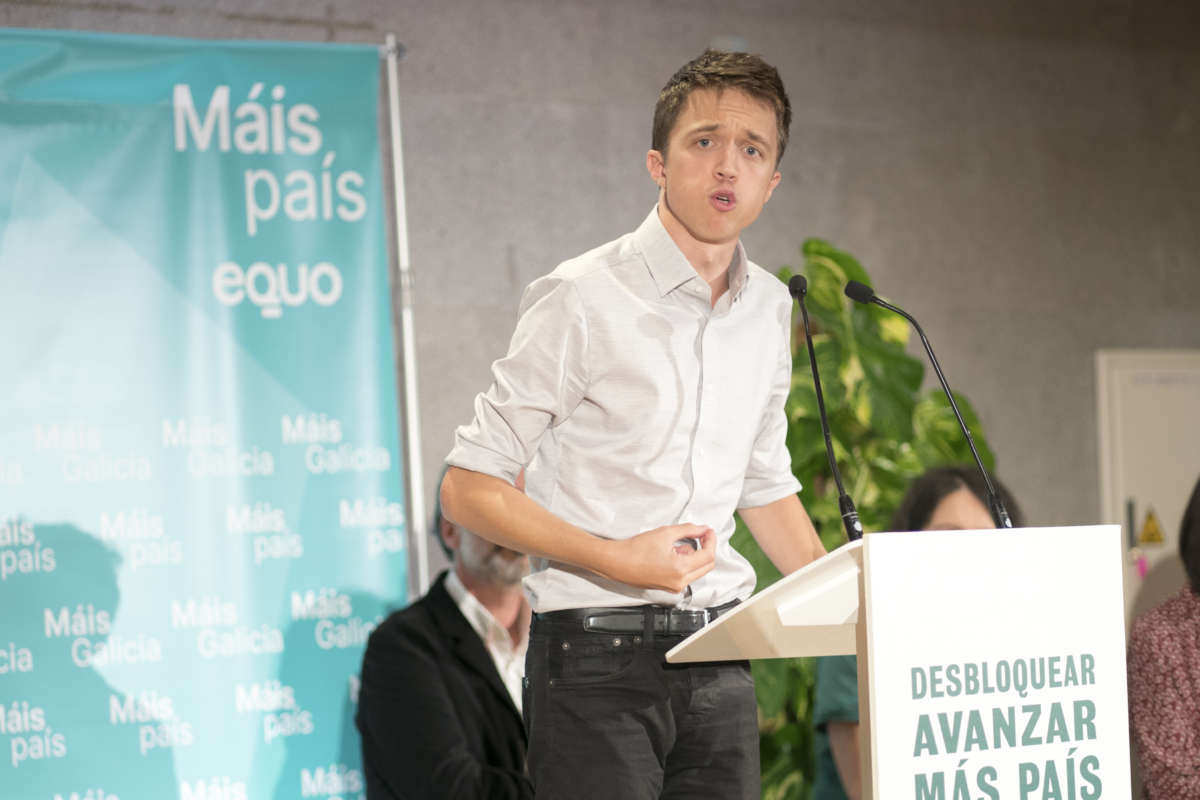Did you know that Truthout is a nonprofit and independently funded by readers like you? If you value what we do, please support our work with a donation.
As the coronavirus pandemic changes the way societies around the world view work, Spain has announced it will begin a limited trial of a four-day workweek in a bid to boost productivity, mental health, and the environment.
The Guardian reports that Iñigo Errejón of Más País — the small left-wing party whose proposal for the trial workweek reduction was accepted by the government last month — called the experiment “an idea whose time has come” and “the real debate of our times.”
Errejón noted that “Spain is one of the countries where workers put in more hours than the European average,” but is not “among the most productive” nations.
The exact details of the pilot program — which could be implemented as soon as this autumn — haven’t been finalized yet. However, Más País has proposed a three-year, €50 million ($59.6 million) trial run that would mitigate risks to employers by having the government cover all implementation costs for the first year, half the costs in year two, an one-third in year three. Employees would work 32 hours per week, with no reduction in pay.
“With these figures, we calculate that we could have around 200 companies participate, with a total of anywhere from 3,000 to 6,000 workers,” Héctor Tejero of Más País told The Guardian. “The only red lines are that we want to see a true reduction of working hours and no loss of salary or jobs.”
“Spain will be the first country to undertake a trial of this magnitude,” said Tejero.
Spain is set to test a 4-day workweek that would give workers 32-hour weeks with no reduction in pay. The government will cover some of the costs for interested companies.
Advocates say it could improve mental health and productivity and lead to a better work-life balance. pic.twitter.com/D9NShZ0axZ
— AJ+ (@ajplus) March 15, 2021
Indeed, while other countries — most notably Finland and New Zealand — have explored a workweek reduction, and while France adopted a 35-hour workweek in 2000, Tejero noted that “a pilot project like this hasn’t been undertaken anywhere in the world.”
Individual employers, including Greenpeace Canada, have also experimented with a four-day workweek, with full pay, during the pandemic.
“It’s the best,” wrote Greenpeace Canada executive director Christy Ferguson of the new policy. “Our work is stronger than ever. Our staff feel more valued. They’re healthier and more energized and more creative at work. They don’t feel so much like succeeding at work and being happy and successful at home are in constant, unresolvable tension.”
“The flexibility it affords has allowed more parents to keep working through the pandemic,” added Ferguson. “And as an organization, it feels like we’re doing a better job of living our values by working to create a different world and a different culture than the one that’s been handed down to us.”
The #benefits of a 4-day #workweek include reduced unemployment, increased #productivity, and greater employee #wellbeing. Read 5 ways employers can implement a shorter, #FlexibleWork schedule in @ConversationUS. https://t.co/1q8heuSfgm #FutureofWork pic.twitter.com/6V59zx9u82
— Mercer US (@Mercer_US) March 10, 2021
In Spain, the Jaén-based tech company Software Delsol last year moved to a four-day workweek. Company CEO Fulgencio Meseguer last year told El País that implementing the policy “has not been easy,” largely because there has been “no reference point and no legislation.”
However, Software Delsol communications director Juan Antonio Mallenco said that “the atmosphere is great and that is also reflected in the company’s results.”
“A satisfied employee means a satisfied customer,” said Mallenco.
Trump is silencing political dissent. We appeal for your support.
Progressive nonprofits are the latest target caught in Trump’s crosshairs. With the aim of eliminating political opposition, Trump and his sycophants are working to curb government funding, constrain private foundations, and even cut tax-exempt status from organizations he dislikes.
We’re concerned, because Truthout is not immune to such bad-faith attacks.
We can only resist Trump’s attacks by cultivating a strong base of support. The right-wing mediasphere is funded comfortably by billionaire owners and venture capitalist philanthropists. At Truthout, we have you.
Truthout has launched a fundraiser to raise $34,000 in the next 5 days. Please take a meaningful action in the fight against authoritarianism: make a one-time or monthly donation to Truthout. If you have the means, please dig deep.
